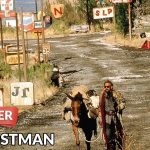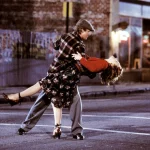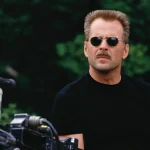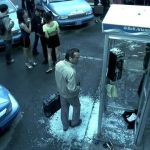🔫 HITMAN (2025): NO MERCY AFTER MIDNIGHT
🔫 HITMAN (2025): NO MERCY AFTER MIDNIGHT
Midnight in the city. The lights blur through rain-slicked windows, casting long reflections onto the cracked pavement. Somewhere between silence and sirens, a man walks alone. Not just any man—this is the ghost they trained to be invisible, the whisper behind assassinations, the myth behind the clean kills. Jason Statham steps into the frame with a presence that bends the air. Cold, calculated, yet human in a way no machine could mimic. He is the embodiment of controlled chaos—disciplined, deadly, and dressed to impress. Beneath the surface of pressed suits and quiet steps lies a storm forged in betrayal, silence, and scars that never quite healed.
In the opening scenes of HITMAN (2025): NO MERCY AFTER MIDNIGHT, the city becomes a character in itself—moody, alive, restless. Neon pulses like a heartbeat, reflected off chrome pistols and shattered glass. Every alleyway whispers secrets. Every rooftop has witnessed blood. The sound design is crisp—gun clicks as punctuation, the low hum of tension in every breath. Statham’s hitman isn’t a hero. He isn’t a villain either. He’s the weapon nations call when diplomacy dies. But this time, the mission has a name. A face. A question he’s never dared ask: what happens when the killer wants to stop killing?
That’s when she enters—Gal Gadot, as the femme fatale who’s more than smoke and mirrors. She’s intelligence wrapped in elegance, danger folded into desire. Her character, Cassandra Virelli, is not just a romantic interest. She’s a mirror to the Hitman’s own contradictions: both of them are weapons polished by powerful men, both of them tired of being pointed and fired. The chemistry between them is not explosive in the traditional sense—it’s magnetic. Quiet glances become code. The pauses between conversations become more revealing than words. In her presence, the Hitman is no longer sure who he is. He only knows he doesn’t want to be what they made him anymore.

But the world doesn’t let go easily. Their partnership begins as necessity—he needs intel, she needs a way out—but soon spirals into a dance of distrust and temptation. They navigate high-society galas, seedy safe houses, and embassies rigged to explode. Each location feels like a stage, and on each stage, the lines between predator and prey shift constantly. The action sequences are brutal, elegant, and unrelenting. A gunfight in a Tokyo rain market becomes ballet. A car chase through a collapsing Roman tunnel becomes poetry in destruction. And always, the tension remains: will they save each other, or destroy one another?
As the plot deepens, the conspiracy unfolds. The agency Statham once served has turned rogue, infected by a corporate shadow council trading lives like currency. They’ve labeled him expendable. And Cassandra? She was once one of them. But something—someone—made her turn. We see glimpses of her past: an abandoned mission, a lover left bleeding, orders that didn’t feel right. Her rebellion isn’t loud—it’s surgical. Precise. In her, the Hitman sees a future. In him, she sees a chance at redemption.

The cinematography speaks volumes. Colors shift with mood: sterile blues in cold headquarters, warm ambers in their stolen moments of quiet, crimson red when the past catches up. The camera doesn’t linger on gore, but it doesn’t flinch from consequence. Every bullet has weight. Every death echoes. And at the center of it all is Statham’s performance—restrained, nuanced, deeply human. He’s a man who has forgotten how to feel, slowly remembering what pain, regret, and love taste like. There’s a scene—brief, silent—where he watches Cassandra sleep, hand on his pistol, torn between duty and desire. It says more than a monologue ever could.
Gal Gadot brings a fierce grace to Cassandra. She is not a sidekick, nor a plot device. Her arc runs parallel and equal. At one point, she saves the Hitman from a rooftop sniper with a single silenced shot—then calmly continues adjusting her lipstick in the mirror. The film allows her strength to be both physical and emotional. She is not cold-hearted, but she has learned to bury her heart deep beneath armor. Watching her slowly let her guard down is one of the film’s greatest triumphs.

And yet, the world around them collapses. As the agency hunts them through Berlin, Marrakesh, and a final showdown in the icy ruins of a Russian black site, they both come to realize: they were never supposed to survive. They were never meant to love. The game was always rigged. But something changed when they met. Not hope, perhaps, but something close to defiance. A refusal to die without leaving a mark. To kill without conscience was easy. But to protect—to choose mercy, even after midnight? That was harder.
The climax is unforgettable. A sequence that crosscuts between Cassandra hacking a control grid with seconds to spare, and the Hitman facing his former mentor—an old operative played with icy venom by Charles Dance. Their final exchange is not flashy. It’s slow. Cold. Filled with all the tension of two men who know they were built from the same mold, now fractured. The Hitman doesn’t deliver a triumphant speech. He simply whispers: “You made me this. But I choose who I end.” Then he walks away, leaving his gun behind.
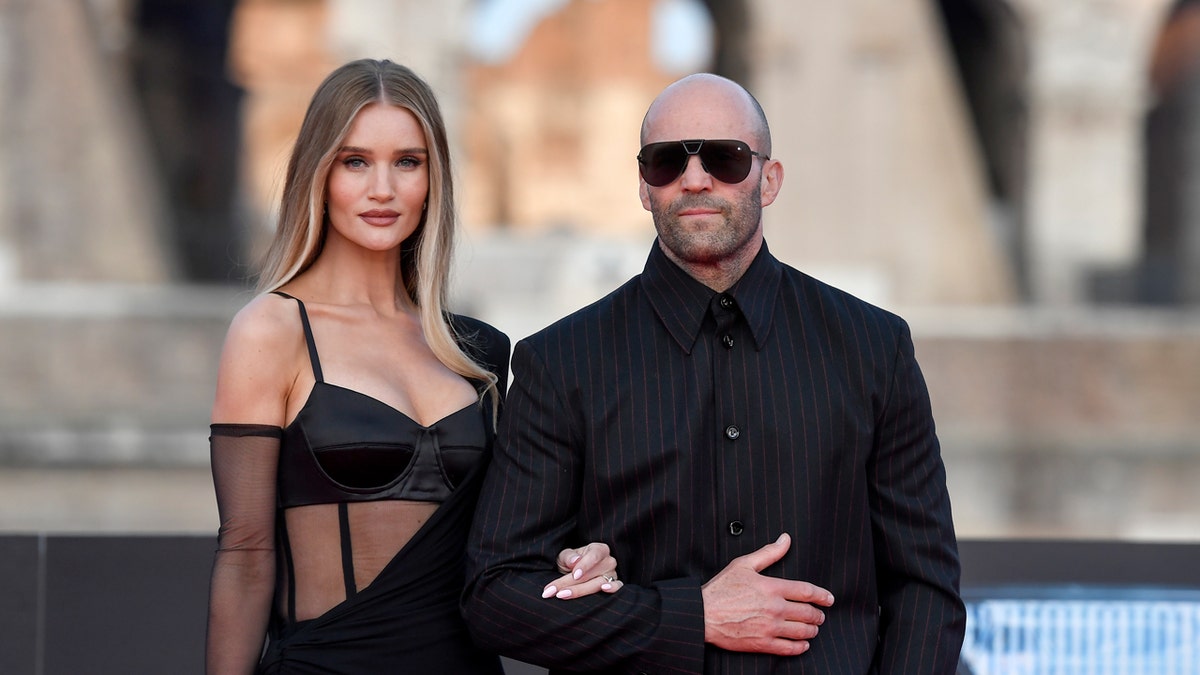
The ending doesn’t tie every thread neatly. But it gives us something better: consequence, sacrifice, and the faintest trace of healing. The Hitman and Cassandra disappear into the static of a world too loud for quiet hearts. Maybe they’ll meet again. Maybe they won’t. But the city will remember them. And the midnight, for once, feels like peace.
HITMAN (2025): NO MERCY AFTER MIDNIGHT isn’t just another action flick. It’s a story about identity, trust, and what it means to choose humanity in a world that trains you to forget it. It asks hard questions wrapped in silk sheets and silencer barrels. It’s fast, but never shallow. Violent, but never senseless. And in Jason Statham’s eyes—haunted, tired, and burning with resolve—we see a portrait of a man who was never meant to feel… learning to.
